LGBTQ parents in Michigan pay thousands to adopt their own children
In the airport on the way back from their Tahitian honeymoon, where the stress of a pandemic and postponed wedding had slipped away into endless sunsets and crystalline waters, Alicia Basin and Corinne Rockoff dove headfirst back into reality. They began scrolling through options for sperm donors.
The two self-described “neurotic planners” had discussed having kids as soon as they began dating. So they didn’t wait long before jumping into the fertility vortex of ultrasounds, hormone treatments and intrauterine insemination.
The women knew it would be expensive and time-consuming to make a baby, and it was. They knew childbirth wouldn’t be easy, although all went smoothly when Basin gave birth to baby Sawyer in early December.
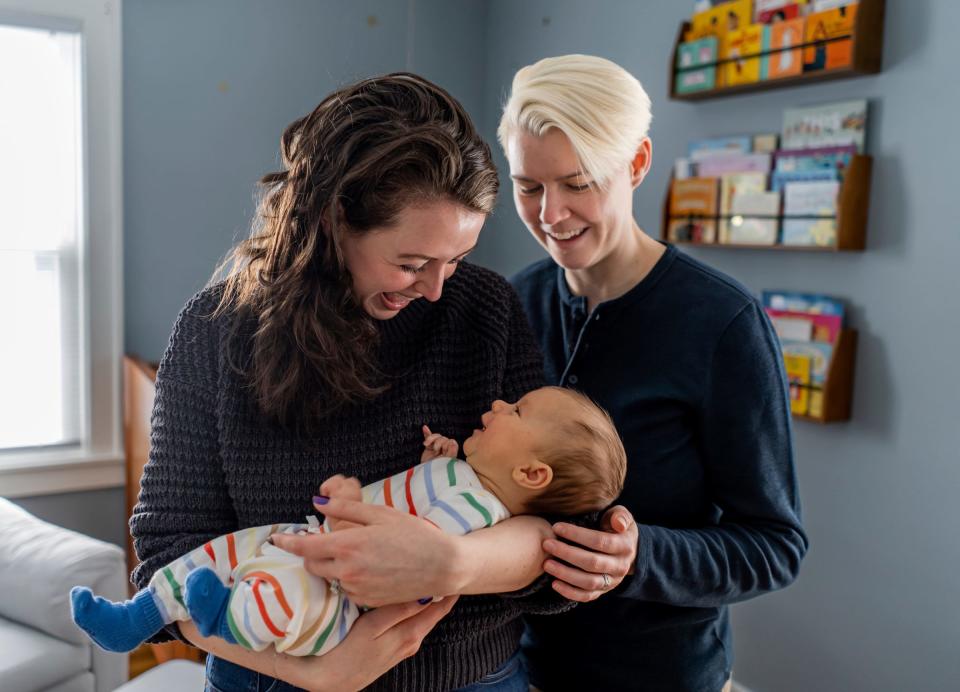
But they didn’t know how depleting, how demoralizing it would feel for Rockoff to have to adopt the child she and Basin so fervently wanted and worked together to bring into the world.
Under Michigan’s statutes, the presumption of parentage applies to heterosexual cisgender couples who have children. The parental rights of those who exist outside these boxes are not secure.
“Some parents are still under the impression that because both their names are on the birth certificate, that this provides all the protections they need, and that's not the case,” said Jay Kaplan, an attorney with the American Civil Liberties Union of Michigan’s LGBTQ+ Rights Project. “We’ve seen where Michigan courts have upheld that someone’s not a parent, even if their name is on the birth certificate.”
More:Doulas say new Medicaid policy supports their work, but not them
More:Whitmer’s pre-K for all announcement met with excitement, concerns
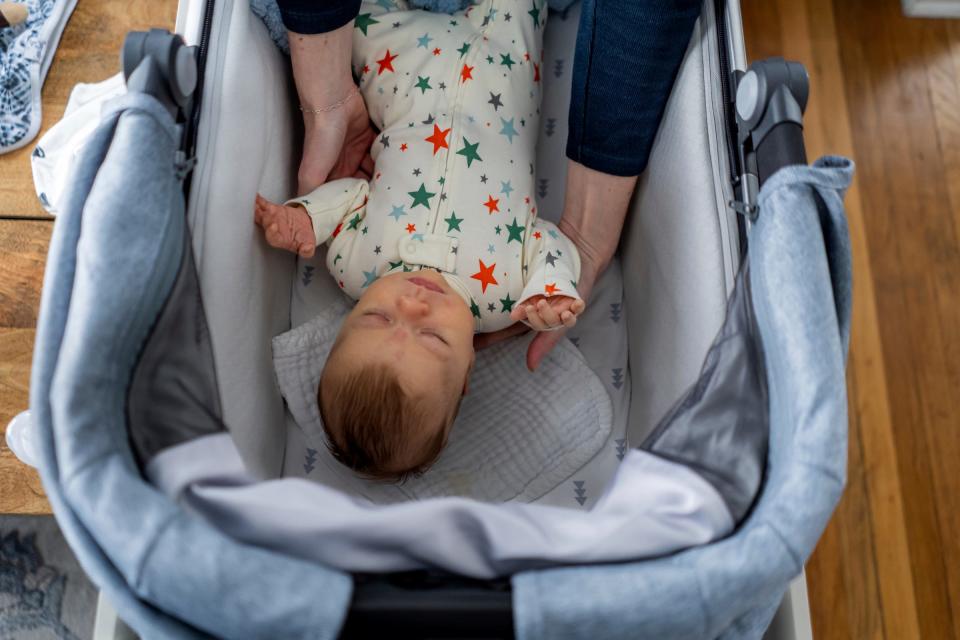
'I want to be responsible for this kid for the rest of my life'
Rockoff paid for the sperm with her American Express and didn’t miss a single one of Basin’s prenatal appointments. She draped herself over her laboring wife’s body during his birth and knows which of her baby’s cries is for milk and which is for sleep.
And yet if something happened to Basin or to their marriage, the only way to ensure Rockoff’s rights to Sawyer couldn’t be threatened is by adopting him as a stepparent.
“I am a person standing up waving my hands in the air screaming, ‘I am a parent! Let me take responsibility as a parent. I want to be responsible for this kid for the rest of my life,'" said Rockoff. “And I can’t just fill out a piece of paper to do that when I’m married to the lady he came out of.”
This is not an issue for heterosexual, cisgender couples. When a baby is born to married parents, the man holding the cup of ice chips in the hospital is presumed to be the father.
But same-sex couples who have a child are not treated the same way. “Our statute still has gendered language, and it does a presumption of parenthood for the husband if a child is born during the marriage,” said Kaplan. “For same-sex couples, there’s not that same presumption.”
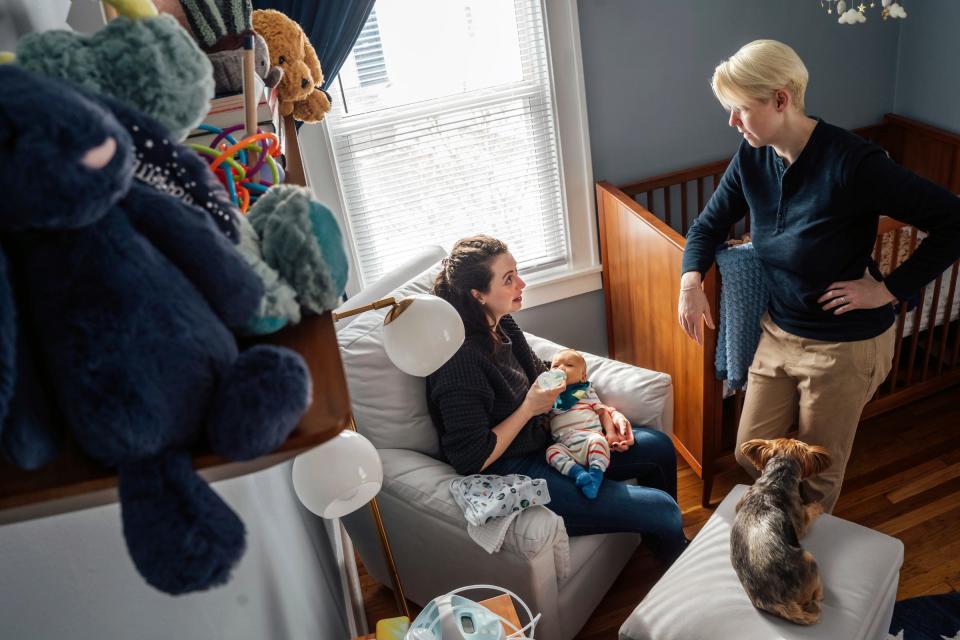
A man who is not biologically related to the child to whom his partner is giving birth may legally become a father by signing an affidavit of paternity. There is no affidavit of maternity or any other gender-neutral affidavit of parentage available to sign. While both parents can put their name on the birth certificate — a policy change that went into effect in 2015 — that document is just a record, not a legal recognition.
In the case of divorce or a death that leaves relatives squabbling over guardianship — even international travel or medical encounters — the parental grip of the “second parent” in a same-sex relationship seems easier to pry open.
“It isn’t a problem until it becomes a problem,” said attorney Angie Martell. “But when it becomes a problem, then it can have huge ramifications.”
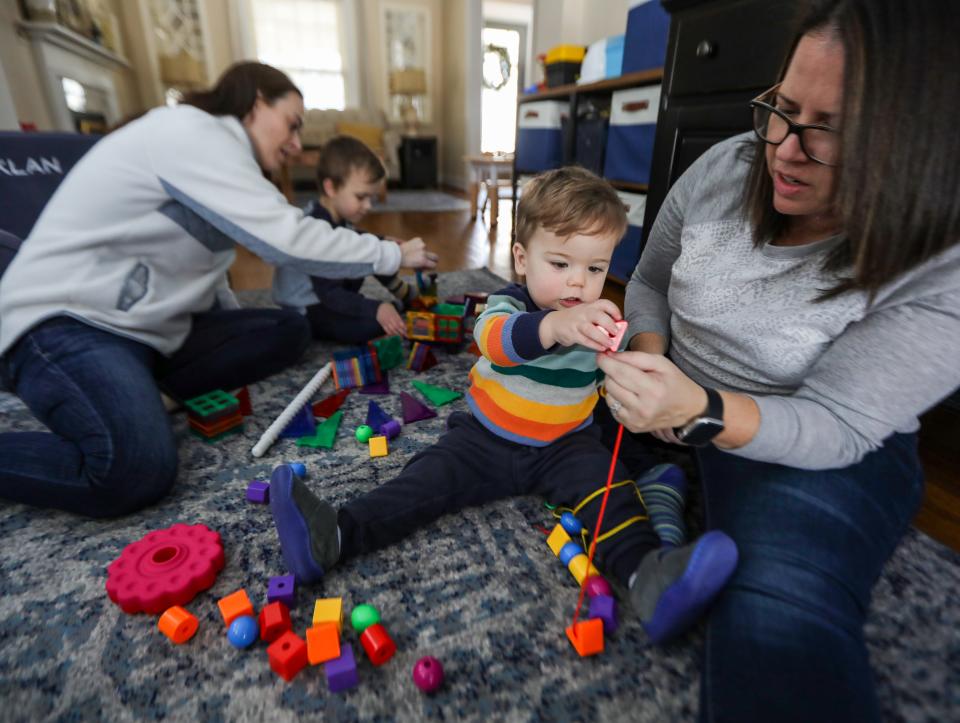
Proving they can parent the kids they already have
That was the fear for Sally Trainor when it came to her son, who was conceived using donor sperm and a egg from her wife, Leanne.
What if something were to happen to her, what if something were to happen to the relationship in the future?” said Trainor. “If someone said to me, sorry, you can’t see him anymore or something like that I would be devastated and so would he.”
On her attorney’s advice, Trainor decided to pursue what’s known as a stepparent or second parent adoption for her own son to safeguard her rights to him. It was the only way, her lawyer said, that her rights as a parent would be ironclad.
“I felt terrible,” Trainor remembered. “I mean, my wife and I cried so much throughout the whole process of doing this.”
And the process was arduous. Court demands vary widely by county, but the Trainors had to get a background check, provide their child’s medical and vaccine records, even produce confirmation that their lawyers had attempted to contact their sperm donor to certify he had indeed waived his paternal rights.
They had to submit evidence of their financial standing to verify they could afford to adopt the son they already had. They were notified their home would be inspected to ensure it was suitable for the child who already ate, played and slept there.
More:Whitmer’s pre-K for all announcement met with excitement, concerns
More:Inside Detroit's 24-hour child care: A fragile lifeline for working parents
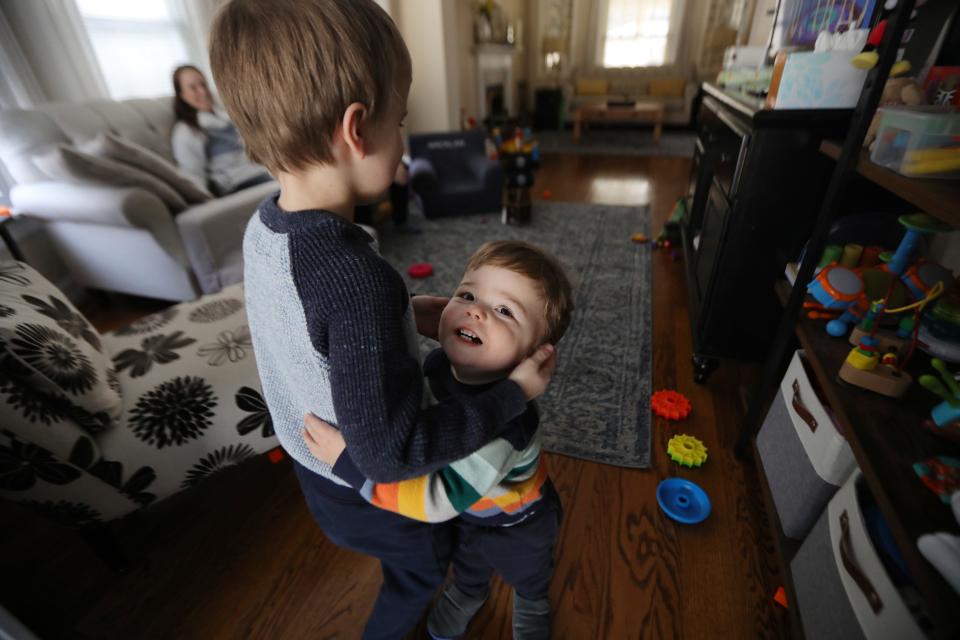
The kicker, Trainor says, was the letter she was asked to write to explain to the court why she wanted to adopt the child, and why he should be with her. “That was so saddening,” she said.
It took two years for Trainor to adopt her son. By that time, the couple had another little boy to adopt as well.
Adopting your own child is intrusive, insulting and expensive
“Michigan is a very antiquated state in terms of its laws, and how you have to fill out all this paperwork and the terminology,” said Holly Tobias, a mom in Washtenaw County who began the process of adopting her son when her wife was only a few months pregnant. “The whole thing is basically intended for stepparents, and they just don't have anything that is up to date for same-sex couples.”
“It really makes the non-bio parent feel as though they are less of a parent in a way,” said Tobias, who called the process intrusive and insulting.

It’s also expensive.
All the hoops LGBTQ couples jump through to adopt — the records checks and the home visits — have fees associated with them. Not to mention attorney bills that add up quickly. Michigan couples must shell out thousands of dollars for the privilege of adopting their own children.
Shawna Queen isn’t even pregnant yet. But as half of a couple who both view themselves as transgender nonbinary, they know having a baby isn’t going to come cheap or easy.
Queen preemptively signed up for a benefit offered through their company: access to 24/7 attorneys who charge only a filing fee for the reams of paperwork and legal representation Queen knows will be required to adopt the child they and their partner hope to bring into the world.
“They’re saving me a ton of money in the process,” said Queen. But their gratitude bumps up against the perceived injury at having to go through the process at all.
“That's the situation for so many trans families specifically, is that there are costs and barriers to care and to accessing the experience of parenting. Adding in additional red tape and costs feels like a profound injustice.”
With a supportive Legislature, change could be possible
Rockoff, who, along with Basin, just submitted adoption paperwork for Sawyer, spent the months leading up to their son's birth and the sleep-deprived weeks following it researching ways for Michigan to make things right.
An attorney herself, Rockoff sees two options. The Legislature could potentially amend the custody act to make it reflective of all types of families and to make clear that the presumption of parentage is not synonymous with the presumption of paternity. Or it could create something free-standing: an opt-in method, like the acknowledgement of paternity act, except something a person of any sex or gender could sign.
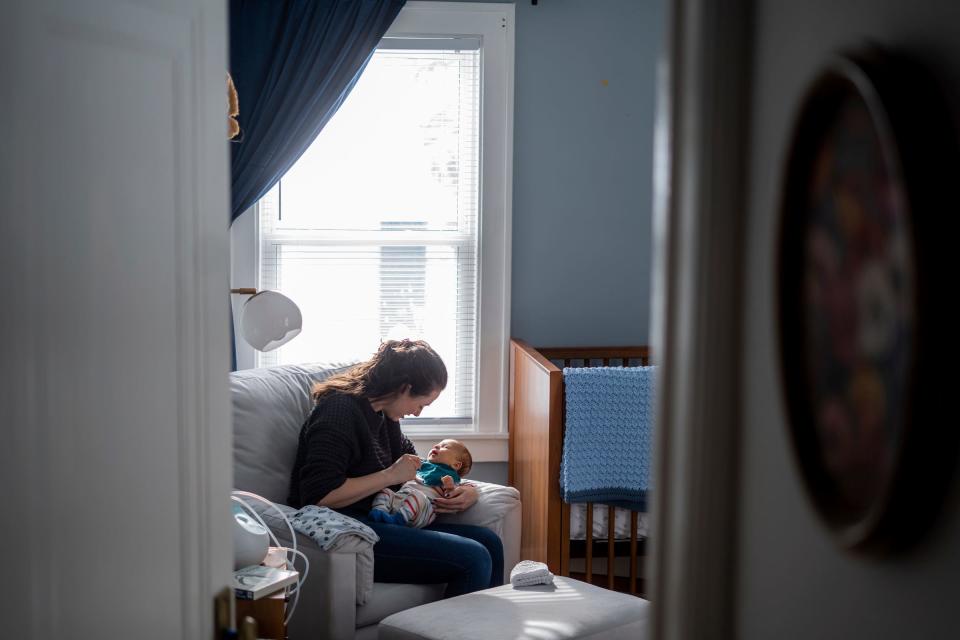
That way, Rockoff says, “at the time of birth, somebody who is there for the whole process and wants to opt in and take on voluntary parental responsibility for that child has the choice to do that.”
She contacted state Rep. Noah Arbit, D-West Bloomfield, who said he would get the ball rolling on researching the statutory changes necessary, and state Sen. Mallory McMorrow, D-Royal Oak, who expressed her support for eliminating what she called extra and arbitrary hurdles.
“We should make it easier, more accessible to start a family, to raise a family, and that is our priority,” McMorrow said. “If it requires standalone legislation, I would be proud to put my name on that bill. If it is kind of amending some rules, I’m happy to lead that charge, too.”
At this point, Rockoff says she’d take any legal solution to something families like hers can’t believe is still a problem. “I will fill out whatever paperwork you give me, just give me a form, my gosh,” she said. “Let me opt in.”
Jennifer Brookland covers child welfare for the Detroit Free Press in partnership with Report for America. Make a tax-deductible contribution to support her work at bit.ly/freepRFA. Reach her at jbrookland@freepress.com.
This article originally appeared on Detroit Free Press: LGBTQ couples pursue second parent adoptions to secure parental rights

